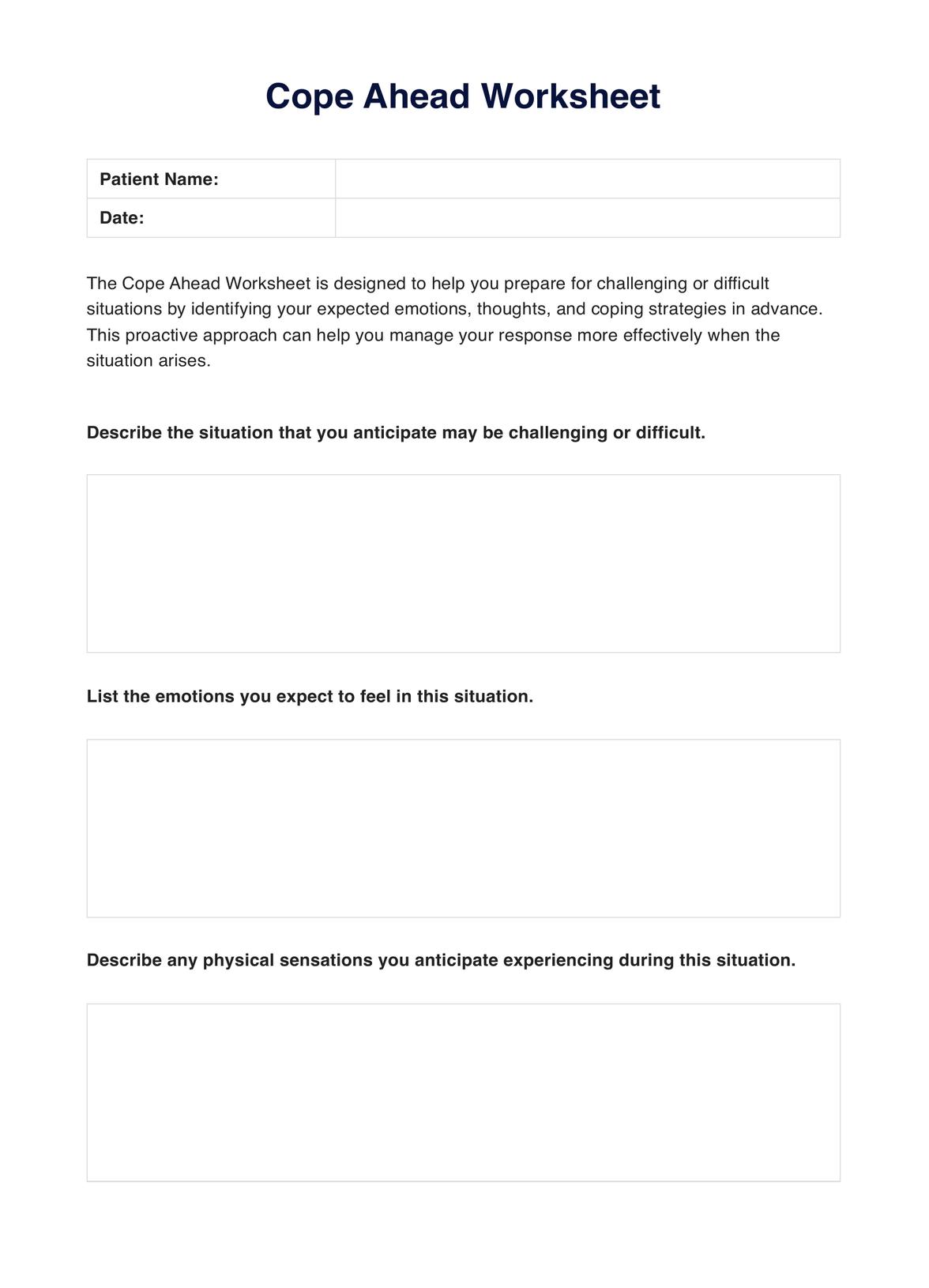What is coping ahead?
Coping ahead is a proactive strategy used in various therapeutic models, including Dialectical Behavior Therapy (DBT), to prepare individuals for potentially challenging or stressful situations. The idea is to anticipate difficult scenarios and plan how to manage emotions, thoughts, and behaviors effectively before the situation occurs. This approach helps individuals feel more in control, reduces anxiety, and increases the likelihood of handling the situation successfully.
Coping ahead involves identifying potential stressors, acknowledging the emotions and thoughts that may arise, and developing a clear plan to cope with these challenges. This technique is beneficial for people who experience intense emotions, have difficulty managing stress, or tend to react impulsively, such as children. It is also commonly used with individuals dealing with mental health issues such as anxiety, depression, and borderline personality disorder.
By preparing in advance, individuals can break the cycle of negative thinking and maladaptive behaviors often accompanying stressful situations.
What can prevent a person from coping ahead?
Several obstacles can hinder an individual's ability to cope ahead effectively:
- Lack of awareness: Some individuals may not be aware of their triggers or the situations that require coping ahead.
- Overwhelm: Feeling overwhelmed by emotions or the situation itself can make it difficult to think clearly and plan.
- Skepticism: Doubting the effectiveness of coping ahead can prevent individuals from engaging in the process.
- Procrastination: Putting off planning until it's too late can result in being unprepared when the situation arises.
- Rigidity: Being inflexible or resistant to change can limit the ability to adapt and cope effectively.
Examples of negative coping mechanisms
Negative coping mechanisms are maladaptive behaviors that provide temporary relief but can exacerbate stress in the long run:
- Substance abuse: Turning to drugs or alcohol to numb emotions.
- Avoidance: Ignoring or avoiding the problem instead of facing it.
- Denial: Refusing to acknowledge the reality of the situation.
- Self-harm: Engaging in self-destructive behaviors as a way to cope with emotional pain.
- Overeating: Using food as a comfort mechanism, leading to unhealthy eating habits.
One of the goals of coping ahead is to keep people from ever relying on these negative coping mechanisms.












